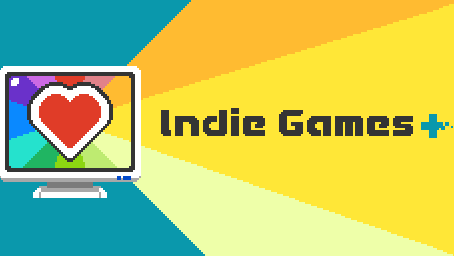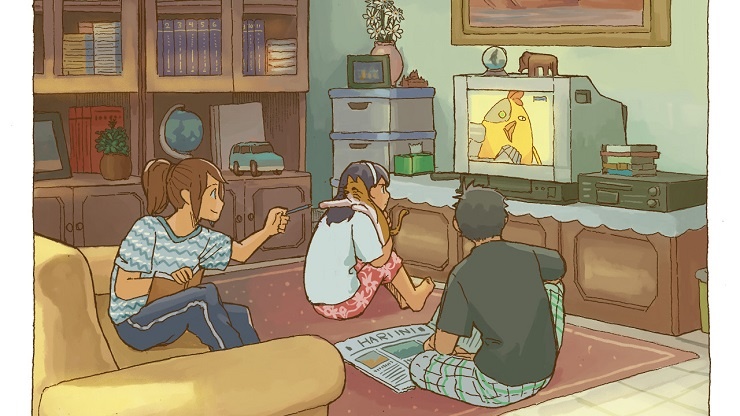In the first installment of our Publisher Profile series on indie game publishers, we spoke to Indonesia-based Toge Productions about the unique opportunities they offer developers in the region.
Who are you?
Antoni: Hello, I’m Kris Antoni, founder and the final boss at Toge Productions. I’ve been an indie game developer for more than 9 years.
Fahmi: My name is Mohammad Fahmi, marketing and PR person, also writer and game designer for Toge Productions.
Can you tell us a bit about your company?
Antoni: Toge Productions is an indie game development and publishing company based in Indonesia. I started the studio back in January 2009 with a friend. Back then, we made Flash web games in our parents’ garages. Since then, we’ve developed and released more than 30 games including mobile, PC, and console games. In early 2017, we decided to expand to games publishing as well to help fellow game developers in the region to fully realize their games and reach the global market.
Fahmi: As Kris (Antoni) has explained, we’ve been around for almost ten year and mostly known for our zombie-virus-spreading arcade simulation series, Infectonator.
We started our publishing division in 2017 after seeing how hard it is for Indonesian developers to get exposure to the global market or to gain access to console devkits (hence the small amount of console games from Indonesia). Currently, we’ve worked with 6 studios in Indonesia. As a publisher, we’ve released 5 games and have other 5 games on our schedule up until early 2020. We’re also in talks with some developers regionally in South East Asia (and some others outside the continent) to work with them as publishers.
You can check out about our games here:

What work do you do to help developers reach an audience? How do you make developers’ live a little easier?
Antoni: Making games in Indonesia is tough. It’s very hard to find funding – most developers cann’t afford to finish their projects, let alone showcase their games at events. That’s where we come in. Toge’s publishing division will help developers secure funding and we’ll showcase their games at international events.
Another obstacle that most Southeast-Asian devs face is obtaining access to console devkits. No other countries in SEA, besides Singapore, can obtain devkits directly due to complicated import regulations and other issues. Since Toge Productions already obtained console developer licenses from PlayStation, Xbox, and Nintendo, we can help developers bring their games to consoles. We also help in QA testing, game design consultation, marketing, and PR. We try to help them as much as we can so that developers can focus on making their game and not worry about the rest.
Fahmi: There are three core things we do to help the devs:
1. Development funding
Money oftentimes becomes a problem during development, hence we support the developers by providing them the money required to finish the game. One rule we made is that, generally, we will only fund 50% of the total development budget so the developers will still have responsibility and ownership of the products they’re developing. IP ownership is still held by all the developers. Of course, we are pretty flexible with this, so if the devs need more money or don’t need it at all, all they have to do is just discuss it with us.
2. Consultancy and quality control
We have weekly meetings with the developers in which we talk about the progress of the development, and also give feedback on what can be improved in the game. The creative control is still in the hands of the team. We also help them with playtesting and bug testing. Development-wise, we also give them access to devkits (which I assure you, is almost impossible to get in Indonesia). We also help with the onboarding process to make sure the games run well on consoles.
3. Marketing and PR
We help the developers introduce their games to media by working with the media directly or through PR agents. We are also the one in contact with platform owners to work on store or event featuring. Other than that, we also bring their games to various events worldwide such as PAX, Tokyo Games Show, Busan Indie Connect, BitSummit, Gamescom, WePlay, etc. One thing we do differently from most publishers is we don’t recoup the cost spent on marketing and PR – it’s all on us.

What is that you’re on the lookout for (genres, content, etc)?
Antoni: We are always looking for games that stand out from the rest.
Fahmi: Mainly, we want a game that has a unique hook. The hook can be from the premise, concept, art style, or gameplay. Nowadays, simply having a good game is not enough to compete on the crowded App Store, Steam, or even Nintendo eShop. Hence, we want to make sure the games have something that can make players be interested by only looking at some screenshots, a GIF, a trailer, or by simply reading the short description on the Steam page.
An example of a game we published that had a strong hook (that I’m sure you’re pretty familiar with) is My Lovely Daughter by GameChanger Studio. By looking at the unique art style and its very intriguing premise, it’s enough to get peoples’ attention and curiosity. Those kinds of hooks are what we’re after.
What do you look for in the developers you want to work with?
Antoni: For each game, we analyze and identify their “hook factors'” elements that can capture people’s attention, and whether or not the game delivers fun or meaningful experiences.
As for the developers themselves, we look for trustworthiness, their personal story, and positive attitude.

Is there anything developers do to make themselves more appealing to publishers? Anything they do that makes them less appealing to publishers?
Antoni: To be more appealing, show publishers that you have done your market research and that you have a working prototype. Show them that you have a clear vision for your game and how your game can capture the target market you are aiming for. If you have proof of market validation (such as traction on social media) it’s even better. Be professional, show good work ethics, be open for feedback and suggestions, and be a nice person in general.
To be less appealing, do the complete opposite of what I mentioned before.
Fahmi: This might sounds generic, but basically: Be nice.
Having someone that’s pretty fun to communicate with is definitely a crucial part of a healthy developer-publisher relationship.
Have a clear goal on the games you want to work on is also important. It would be difficult to work with small developers equipped with only a few years of experience that suddenly want to make a massive online RPG in the scale of FF XIV with only $20000 as their projection budget.

